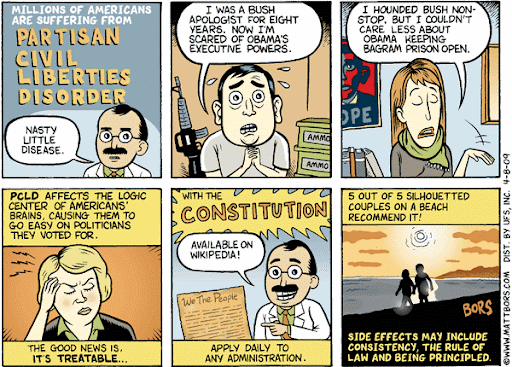The Arizona Republic published an article discussing the various details of Obama’s recent trip to Mexico. While it covered a wide range of details, I was mostly concerned with the gun-related issues. I’ve taken some excerpts and made some comments below:
President Barack Obama, outlining plans to help Mexico combat drug violence, promised Thursday to resurrect a treaty against arms trafficking that has been stuck in Congress for 12 years, but rebuffed Mexico’s demands to curb sales of assault weapons that Mexico is demanding.
While I’m glad that he doesn’t seem inclined to promote an assault weapons scary-looking-gun ban, the fact that Mexico is “demanding” changes to American laws, particularly fundamental ones like the right to arms, is troubling.
Obama showed little appetite for reviving the 1994-2004 Assault Weapons Ban. During a joint press conference in Mexico City, Mexican President Felipe Calder?n blamed the end of the ban for the increasing firepower wielded by drug cartels.
Well, then Calder?n is an idiot. The now-expired AWB didn’t have any effect on the availability of certain scary-looking guns. Ban-compliant AR-15s and AK variants, for example, were easily found during the decade it was in effect, and are functionally identical to guns that were banned. Guns affected by the ban were simply semi-auto lookalikes of their select-fire military brethren, and are now the most common sporting arms in the country. They are used by no military in the world. The guns used in violent crimes in Mexico are almost certainly the select-fire variants which are effectively unavailable to US citizens, and not available in US gun shops.
Obama said he still believes the assault weapons ban ?made sense,? but that he wants to concentrate on measures against gun smuggling, not gun sales themselves. Many Congress members, including Democrats, have vowed to fiercely oppose any revival of the ban.
If Obama believes the AWB “made sense,” then he’s a fool. It was about as effective as banning red cars (but not banning non-red versions of the same car), because red cars are obviously go faster and are more dangerous than every other car. Anyway, good on Congress for vowing to oppose any such ban.
The ban prohibited sales of semi-automatic weapons with certain combinations of military-style features, such as folding stocks, large magazines and flash suppressors. Opponents of the ban say the weapons actually fire smaller bullets than some other rifles, and that it is unconstitutional to ban a gun simply because of how it looks.
I’m not sure about the constitutionality of a ban(( My gut instinct says a ban would be unconstitutional, but I’m not a lawyer and Constitutional law can get rather muddied and complex. )), but simply having “smaller bullets” doesn’t make a gun any less dangerous than any other. 7.62mm NATO is certainly more lethal than, say, .32 ACP, but the .32 has a slightly larger bullet.
It’s nice to see a media outlet describe, with reasonable accuracy, the gist of the AWB, rather than claiming it banned machine guns or other such stuff.
